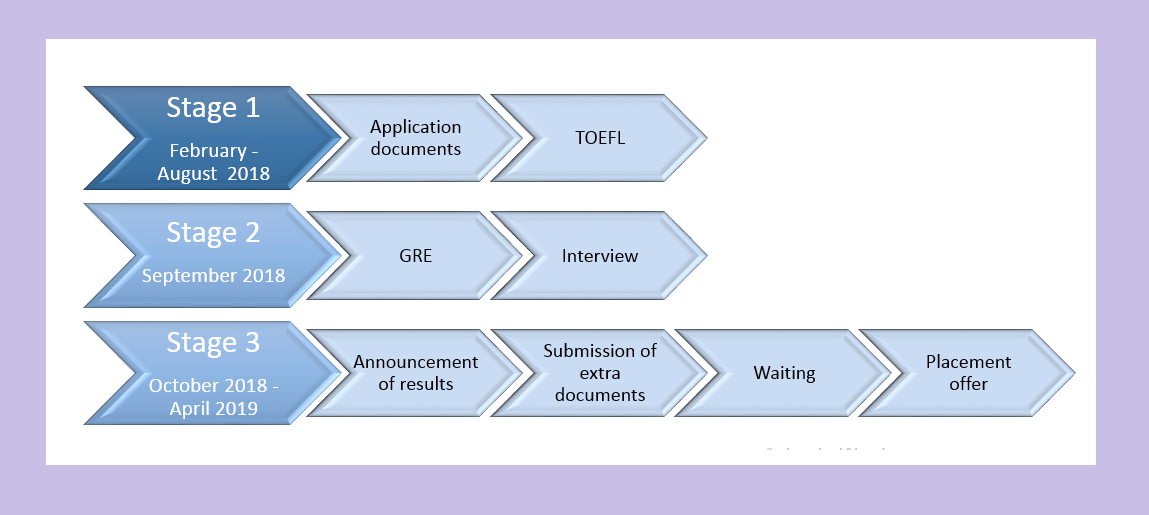What comes to your mind when you think about studying abroad? A chance to see the world? To immerse yourself in a foreign culture and practice language skills? Or is it about an opportunity to start building your career? I would say “yes” to all of this, adding that the status of an international student may expand our horizons and make us feel as being a part of the bigger world. Sounds like a dream, right? Actually, it used to be one of my biggest dreams when I first found about different programs of academic exchange. For a long time, such an opportunity seemed unattainable to me. A while ago, I would think that only “the chosen ones” could reach that star and become international students. Things have changed since I became a grantee of Fulbright scholarship and moved to the U.S. to study in graduate school. In my blog, I am going to explain what it means for me to be a Fulbright grantee, and, hopefully, to prove that nothing is impossible for those who have such a dream.
First, let me introduce myself. My name is Kseniia. I am a graduate student at St Cloud State University, Minnesota. I was born in Kazan city, Russia, and I had never traveled abroad before coming to the U.S. last year. How did I come to this point? Here is the story: two years ago, I graduated from Kazan Federal University receiving my bachelor’s degree in teaching Russian and English. At the beginning of the last semester, my professor sent me an email, which had a subject “Fulbright Award.” The name seemed familiar to me, and I decided to learn more about this. Sometimes it is nice to relive that moment in my memories, reminding myself how it all started. Back then, I could not imagine that this program would literally change my life.
Let’s move on to the main question: what is Fulbright?

Fulbright is an academic exchange prog ram that offers different types of awards to students, teachers, and scholars in more than 140 countries. The history of the program dates back to 1946 when the American senator James William Fulbright (1905 – 1995) put the idea of international academic exchange into action. If you feel like learning more about Fulbright’s history, you can check an official website of the program.
Types of the Fulbright awards may vary depending on the country. For example, here is the list of programs for Russia:
| Student and faculty programs |
Scholar Programs |
International Education Administrators |
Other programs |
| Graduate students
I am here 🙂 |
Visiting Scholar |
Facilitators of international exchange programs: hosting foreign students, professors and visiting guests |
Humphrey fellowship |
| Faculty development program (FFDP) |
Scholar in Residence |
|
Awards for alumni |
| Foreign Language Teaching Assistant (FLTA) |
Arctic Initiative |
|
|
I applied for the Graduate Student program when I was about to finish my five-year Bachelor’s degree course in teaching. The whole process – from the day I submitted my application to the day of a pre-departure orientation – took about a year and a half. I will speak about this in detail in one of my following posts. Anyway, if you choose to participate in the program, arm yourself with patience as the process of application will require time and lots of preparations.
Looking back, I do not regret making that choice. Following the dream, I traveled a long way from Russia to the U.S. to study Rhetoric and Writing in graduate school. This is only a small part of the whole story, and I hope to share more notes from my Fulbright journal soon!
Now it’s your turn 🙂 What do you think about studying abroad? Have you ever heard of any programs of academic exchange? If yes, have you tried applying for any of them? In what countries have you considered studying? Why? Feel free to share it here, and let’s begin reaching for the stars together!
Sources used:
https://us.fulbrightonline.org
https://us.fulbrightonline.org/about/history
http://www.fulbright.ru/en/russians/vgs/

